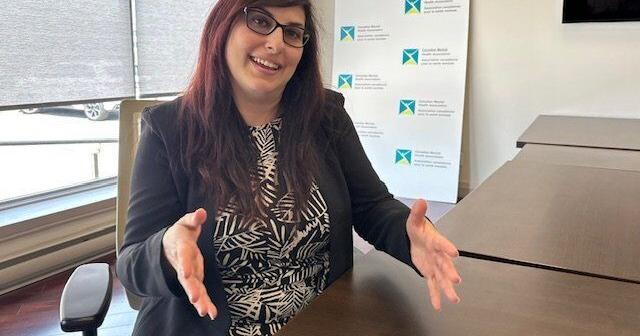Article – The quiet crisis affecting many newcomers to York Region has found a powerful response in a groundbreaking mental health initiative. For thousands of immigrants arriving in our communities each year, the promise of a better life often collides with unexpected mental health challenges that can derail their Canadian dreams.
I visited the Canadian Mental Health Association’s (CMHA) York Region headquarters last week, where program director Elena Martins showed me their newly expanded Newcomer Mental Health Support Program. Walking through their welcoming space in Newmarket, I couldn’t help but notice the multilingual signage and culturally diverse counseling rooms designed to put clients at ease.
“What many Torontonians don’t realize is that immigration itself can be a traumatic experience, even when it’s voluntary,” Martins explained. “We’re seeing individuals who left behind professional careers, family support systems, and familiar cultural contexts only to face isolation, language barriers, and sometimes discrimination here.”
The program’s significance becomes clear when considering York Region’s demographics. According to Statistics Canada, nearly 47% of York Region residents are immigrants, with approximately 20,000 newcomers arriving annually. Research from the Centre for Addiction and Mental Health shows immigrants are 10% less likely to seek mental health support than Canadian-born residents, despite facing unique stressors.
During my visit, I met Anika (name changed for privacy), a former engineer from Bangladesh who arrived in Canada three years ago. “I was having panic attacks, couldn’t sleep, and felt completely alone,” she shared. “In my culture, we don’t discuss mental health. The CMHA program connected me with a counselor who understood my background. Now I don’t have suicidal thoughts anymore.”
The program’s innovative approach includes culturally responsive therapy, settlement support integration, peer mentoring, and multilingual services in 12 languages. Funding comes primarily from Immigration, Refugees and Citizenship Canada, with additional support from the Ontario Ministry of Health.
Dr. Maya Wong, a cultural psychiatrist consulting with the program, emphasized the importance of this specialized approach. “Mental health treatment isn’t one-size-fits-all. Different cultures conceptualize and express psychological distress differently. What looks like depression in a Western context might present primarily as physical complaints in other traditions.”
York Region’s diversity creates both challenges and opportunities for mental health providers. The region includes substantial Chinese, South Asian, Iranian, and Russian communities, each with distinct cultural attitudes toward mental health. Program counselors receive specialized training in culturally responsive care that respects these differences.
Community partnerships have proven essential to the program’s success. Local settlement agencies, faith organizations, and cultural associations help identify individuals needing support and create crucial bridges of trust. Outreach workers visit community events, places of worship, and English language classes to connect with newcomers who might otherwise remain isolated.
The pandemic exacerbated many challenges newcomers face. Sarah Johnson, a mental health nurse with the program, noted a 35% increase in referrals since 2020. “COVID-19 intensified isolation for many newcomers who were already disconnected from support systems. Some lost jobs in sectors heavily impacted by lockdowns, creating financial stress on top of everything else.”
York Regional Police have also partnered with the program. Officer Raj Singh works as a community liaison and told me about their collaborative approach. “We see the downstream effects when mental health needs go unaddressed. By connecting vulnerable individuals with culturally appropriate support early, we’re preventing crises and building community trust.”
Critics note that demand still outpaces available resources. Wait times for specialized services can reach 4-6 weeks, though crisis support remains immediately accessible. Program administrators acknowledge these limitations while advocating for expanded funding.
For newcomers seeking support, the program offers multiple entry points. Self-referrals are accepted through their website, while healthcare providers, settlement agencies, and community organizations can also connect clients to services. An initial assessment determines appropriate supports, ranging from one-on-one counseling to group therapy or practical assistance navigating the healthcare system.
As Toronto’s surrounding regions continue growing more diverse, the CMHA’s approach offers valuable lessons for creating mental health systems that truly serve everyone. The program demonstrates how cultural understanding, community partnerships, and specialized training can transform mental health outcomes for newcomers.
Looking ahead, program leaders hope to expand digital services, develop additional language capabilities, and increase outreach to underserved newcomer communities including LGBTQ+ immigrants and refugees with complex trauma histories.
What struck me most during my visit was the atmosphere of genuine hope. Despite addressing serious challenges, the program celebrates resilience and recovery. A wall covered with anonymous notes from clients tells the story: “I can breathe again.” “My children have their mother back.” “Canada feels like home now.”
For more information on accessing services or supporting the program, visit the CMHA York Region website or contact their newcomer support line.







